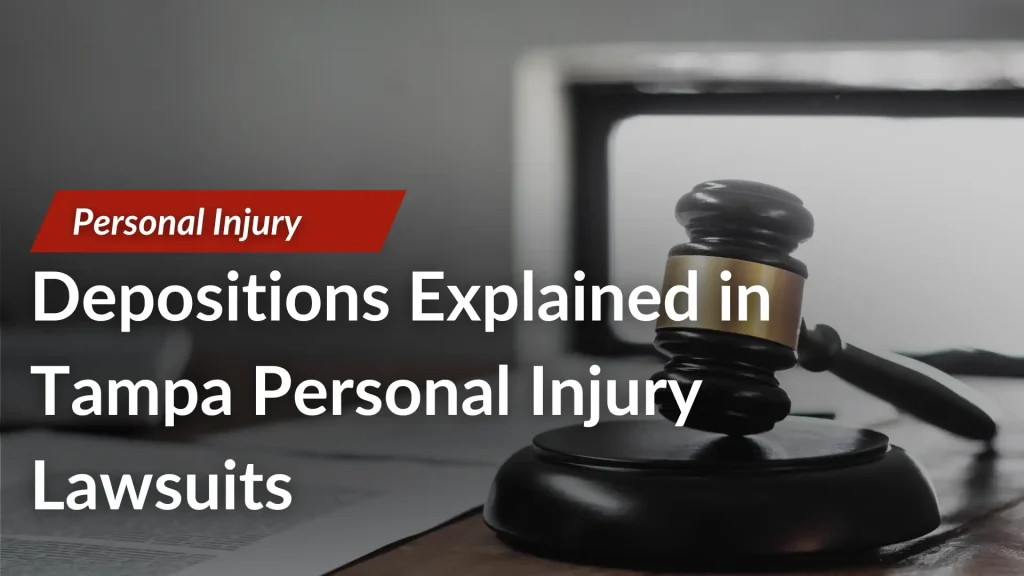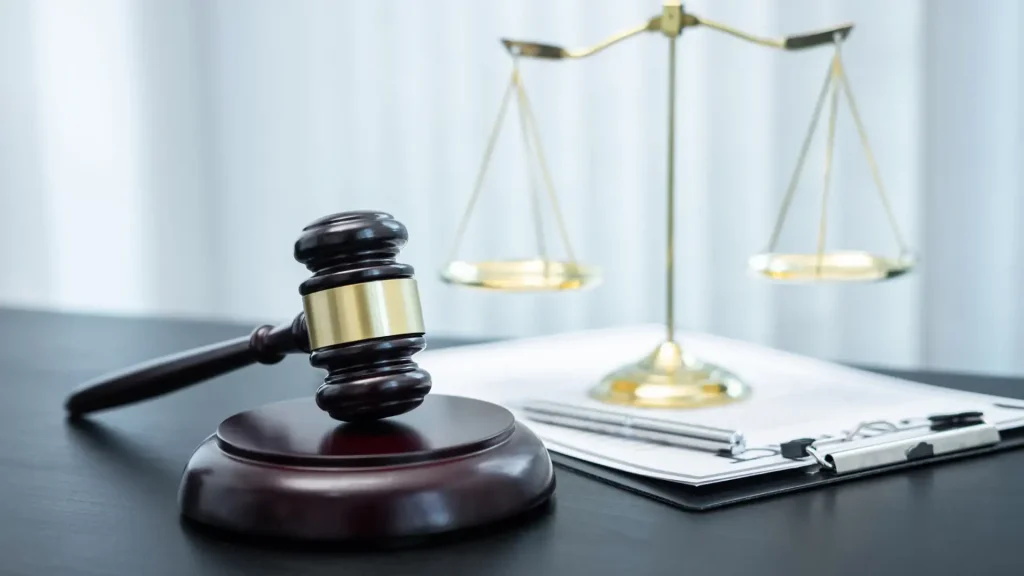 What is a personal injury deposition? If you’re going through the process of filing a personal injury lawsuit in Tampa, you and other parties involved in the case may be required to provide testimony in the form of a deposition. Depositions play a crucial role in many personal injury lawsuits. Understanding what they entail and how they fit into the broader process can be helpful as you and your personal injury attorney prepare.
What is a personal injury deposition? If you’re going through the process of filing a personal injury lawsuit in Tampa, you and other parties involved in the case may be required to provide testimony in the form of a deposition. Depositions play a crucial role in many personal injury lawsuits. Understanding what they entail and how they fit into the broader process can be helpful as you and your personal injury attorney prepare.
What Is a Deposition?
What is the meaning of personal deposition? A deposition is a formal interview conducted under oath outside of a courtroom. It’s part of the discovery process, in which both sides gather information and build their cases. During a deposition, attorneys from both sides question the witness, and a court reporter records their testimony verbatim, which both sides can later use as evidence in court.
Depositions let both parties gather sworn testimony to support their arguments, impeach witnesses, or clarify case details. They also allow attorneys to observe the witness’s demeanor, body language, and overall credibility firsthand. This can help them evaluate the effectiveness of the witness at trial and whether their testimony is reliable.
How long a deposition takes depends on the case’s complexity, what is at stake, and your role. It might be a short and straightforward process lasting only minutes, or it could stretch into several hours or even days.
How Depositions Help in Personal Injury Cases
Depositions play a vital role in personal injury cases. They provide crucial testimony that can support your claims or undermine the opposing party’s arguments. They also serve as a tool for impeachment, allowing attorneys to challenge the credibility of witnesses if their trial testimony contradicts their deposition statements. Additionally, depositions help attorneys evaluate the strengths and weaknesses of both sides, informing settlement negotiations and potentially leading to a favorable resolution without the need for a trial. They also aid in trial preparation, helping attorneys develop effective strategies by revealing key facts and identifying potential issues while preparing witnesses for cross-examination.
The Deposition Process
Your attorney may advise that giving a deposition could benefit your personal injury case. To this end, they will check your availability and schedule the deposition. You will receive a notice of deposition, which includes the date, time, and location.
Preparing for the deposition involves reviewing relevant documents, understanding the types of questions the other side may ask, and discussing strategies for providing clear and concise answers. Your attorney may assist you with feedback on your demeanor or by practicing calm, measured responses to areas of contention. Your attorney may also remind you that no matter how friendly or nice opposing counsel seems, they are not looking out for your best interest.
When it’s time for your deposition, a court reporter or notary public will swear you in. You must affirm that your testimony will be truthful. Attorneys for both sides will ask you questions related to the case. Your attorney will be present to object to inappropriate questions and provide guidance. A court reporter will transcribe the entire deposition, creating an official record of the testimony. You may take breaks during the deposition. If you need a moment to collect your thoughts or confer with your attorney, don’t hesitate to request a break.
After the deposition concludes, you will have the opportunity to review the transcript for accuracy. If there are transcription errors or clarifications needed, the court reporter can correct the record. Receiving the transcript may take some time, depending on the court reporter’s schedule. Your attorney may have follow-up discussions with you to analyze the deposition’s impact on your case and to plan the next steps in your litigation strategy.
What Will You Be Asked About During a Deposition?
During your deposition, you’ll answer a series of questions to gather detailed information about your background and the incident in question. This includes personal details such as your name, address, date of birth, employment history, and any previous medical conditions or treatments you’ve had that may relate to your injuries.
You will also be asked specific questions about the accident to obtain a comprehensive account of the events before, during, and after it occurred. Expect to provide detailed descriptions of your injuries, symptoms, and medical treatment. You should also prepare information about the doctors you consulted and any medical expenses you incurred.
You’ll also explain how your injuries affect your daily life. This includes physical limitations, emotional challenges, and financial repercussions like lost income or increased expenses. This information is critical in shaping the case and determining the compensation you may receive.
Tips for a Successful Deposition

Being asked to give a deposition in your personal injury case can be intimidating. It’s natural to feel anxious about the process, especially if you aren’t sure what to expect. Your attorney will take an active role in preparing you ahead of time. Here are some tips to help you before and during your deposition:
- Know Your Case – Review all relevant documents and facts about your case with your attorney.
- Practice – Participate in mock depositions to become familiar with the process and improve your responses.
- Remain Calm and Composed – Maintain a calm demeanor, even if the questions become challenging or confrontational.
- Listen Carefully – Pay close attention to each question before responding. Ensure you understand the question fully before answering.
- Be Honest – Provide truthful and accurate answers, avoiding exaggerations or omissions.
- Take Your Time – There is no rush to answer quickly. Take your time to think about your responses.
- Avoid Speculation – If you don’t know the answer to a question, it’s acceptable to say so. Avoid guessing or making assumptions.
- Keep Answers Brief – Answer questions succinctly and avoid volunteering additional information beyond what the attorney asks for.
Contact a Tampa Personal Injury Lawyer Today
Our firm understands that going through a personal injury lawsuit can be a stressful process, and providing testimony during a deposition may not be something you expect to do. Fortunately, working with a skilled Tampa personal injury attorney can help this step go much more smoothly – and a successful deposition may provide critical evidence to support your case for compensation.
For experienced and knowledgeable legal support throughout your personal injury case, contact Jurewitz Law Group Injury & Accident Lawyers online or call us today at (619) 233-5020 to get started with a free consultation.


